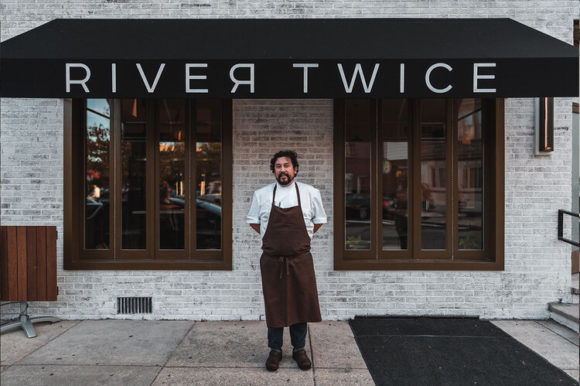Two groups of plaintiffs — one in Philadelphia, the other in Chicago — are asking federal courts to consolidate lawsuits filed by businesses that are seeking coverage for business-interruption losses caused by coronavirus stay-home orders.
Attorneys for owners of the River Twice and Chops restaurants in Philadelphia on Monday petitioned the U.S. Judicial Panel on Multidistrict Litigation to consolidate similar lawsuits that seek to force carriers to pay for income lost due to government shut-down orders. The attorneys identified 11 similar lawsuits that had been filed in multiple jurisdictions and asked that all similar cases be heard by U.S. District Judge Timothy J. Savage in Philadelphia.
On Tuesday, another group of businesses — including Bridal Expressions, Caribe Restaurant & Nightclub and Dakota Ventures — filed a separate petition asking that business-interruption suits be consolidated under U.S. District Judge Matthew F. Kennelly in Chicago. The Chicago attorneys identified 16 similar business-interruption lawsuits.
Attorney Adam J. Levitt in Chicago said that it makes sense for a single judge, instead of multiple jurisdictions, to resolve issues that the plaintiffs have in common.
“The last thing anyone wants is for 50 different federal judges ruling” on such issues, he said.
A central question is whether coronavirus is a physical damage that would trigger coverage under policies that include coverage for business losses from closures ordered by civil authorities.
Insurers have denied business-interruption claims filed by restaurants and other businesses that were forced to shut down or switch to delivery-only, arguing that a civil ordered issued to prevent the spread of a pandemic does not amount to physical damage. The Hartford and Travelers have both declared their intent to deny such claims, according to the Philadelphia group’s suit.
“Insurance for business interruption can provide coverage when a policyholder suffers a loss of income due to direct physical loss or damage to covered property at its location or another location,” Travelers said in a letter to New York policyholders. “It does not cover loss of income due to market conditions, a slowdown of economic activity or a general fear of contamination.”
Levitt and other plaintiff’s attorneys argue that if coronavirus is not direct physical damage, insurers would not have created an exclusion for viruses, which are included in many business owners’ policies. The Insurance Service Office created the exclusion for viruses after the first SARS pandemic scare in 2003.
Some attorneys have argued that coronavirus closures should be covered even under policies that do not exclude viruses. Travelers, in fact, last week filed a lawsuit against the the Geragos & Geragos law firm in Los Angeles seeking a declaration from a federal judge that its policy specifically excludes coverage for viruses, and that business-interruption coverage wouldn’t be owed even if it did.
Levitt said most of his clients purchased policies that do not have a virus exclusion, or have exclusions that are “sufficiently weak.” He said business owners around the country have purchased insurance thinking that they would be covered in emergencies, only to be denied.
“We are being contacted by close to 100 business a day,” he said. “Our phones are ringing off the hook.”
Lawsuits filed against insurance carriers have been noted in local news reports around the country. A Google search shows that in a one 24-hour period ending Wednesday morning, local media reported:
- The Guajillo Mexican restaurant in Rosslyn, Virginia filed suit against The Hartford’s Twin City Fire Insurance Co. for business-interruption coverage.
- Al Johnson’s Swedish Restaurant in Sister Bay, Wisconsin filed suit against Society Insurance to recoup business losses.
- The Joseph Tambellini Restaurant and Sieb’s Pub in the Pittsburgh, Pennsylvania area sued Erie Insurance.
- The IT! Italy Ristorante Cafe & Bar in For Lauderdale filed suit against Chubb Ltd. to gain coverage for its losses.
The Philadelphia petition, filed by attorney Richard M. Golomb with Golomb & Honick, stated that the business-interruption is of such national significance that even President Donald Trump spoke about the issue during an April 10 press conference. The filing included a quote from Trump — reported previously by the Claims Journal— saying that insurers should pay business-interruption claims if pandemics are not excluded.
The petition argues that consolidation is prudent because”different federal courts, in duplicating rulings on the same issues, could make contradictory findings. Litigation of this scope and importance should not be beset with such inconsistencies and inefficiencies.”
The Multidistrict Litigation Panel has placed the two petitions on its July 30 docket, which means they will be heard by the seven judges on the panel during its scheduled hearing in Boston, Levitt said. As of Wednesday, the panel had linked 16 separate lawsuits to the case.
The panel asked insurers to file consolidated responses by May 12.
About the photo: Chef Randy Rucker shown in front of his River Twice restaurant in Philadelphia. Photo courtesy of the restaurant’s website.
Was this article valuable?
Here are more articles you may enjoy.


 Cape Cod Faces Highest Snow Risk as New Coastal Storm Forms
Cape Cod Faces Highest Snow Risk as New Coastal Storm Forms  Why 2026 Is The Tipping Point for The Evolving Role of AI in Law and Claims
Why 2026 Is The Tipping Point for The Evolving Role of AI in Law and Claims  Canceled FEMA Review Council Vote Leaves Flood Insurance Reforms in Limbo
Canceled FEMA Review Council Vote Leaves Flood Insurance Reforms in Limbo  FM Using AI to Elevate Claims to Deliver More Than Just Cost Savings
FM Using AI to Elevate Claims to Deliver More Than Just Cost Savings 